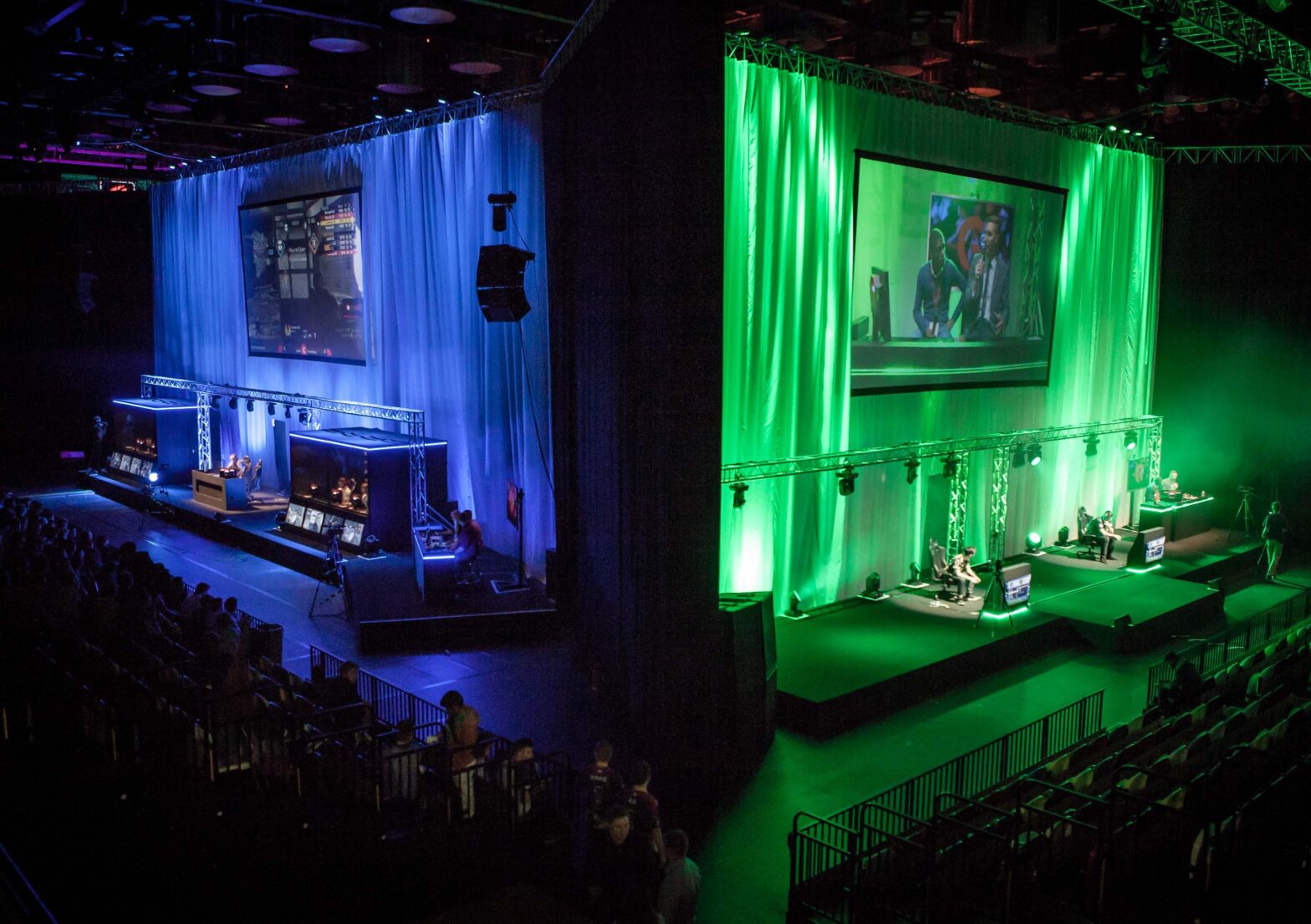Neville Upton made his first splash in the business world when he formed The Listening Company 13 years ago. Appropriately enough it was listening to his employees that gave him the idea for new venture Gfinity. The eSports business now organises global online sporting events with up to 4,000 ticket-paying viewers.
When Upton heard his colleagues in the pub discussing their plans for the weekend it was the first time he realised there was a whole community of online sports fans that he could tap into.
“When I was chatting to employees on a Friday night I noticed a large proportion were talking about video games as part of their weekend plans,” he says. “So I got more and more interested in the area. As I was talking to them I realised there was a huge opportunity because whereas people were playing the games there was still very little organised competition.”
When researching further he realised that even where there were structures in place they were “not very well run and very ad hoc”. At some stage he says he had the dawning realisation that “a massive cultural revolution was taking place under our noses” and that no one was doing anything about it.
He set about raising funding for his new venture; initially investing his own money before turning to business angels and eventually putting the business on AIM. He says pitching even now can occasionally draw the occasional blank expression as “many people simply don’t know about this whole area”.
“Most people had no idea what I was talking about,” he admits. “But a lot of people said ‘because it’s you and you did last time we’ll back you again’”.
People who think in this way are one of two kinds of investors, according to Upton. He believes there is one group who research the space in which the business operates to ensure they money is relatively safe, and another who thinks “we’ll back the team”.
>See also: Businesses must constantly evolve or risk getting caught out
“Everyone’s going to read business proposals and everyone’s going to do some analysis – but ultimately some people say that if you’ve got a good team, whatever you decide to do you’ll probably make a success of it.
“Others are more analytical about business plans and markets. Some people are really into financial projections whereas others don’t care about that side so much. They just think if it’s a good idea the profits will come. I’m not saying that either approach is right or wrong – but the key thing is to have a group of shareholders that’s comfortable with what you’re doing.”
2014 was a big year for establishing credibility both for Gfinity as a brand and for the wider eSports industry, according to Upton. The ultimate goal is for online tournaments to be seen as just another sporting competition; with those taking part considered “top athletes”.
The company is hosting 29 events in 2015. Upton claims they will be “putting out content every weekend”.
“We’re looking to start attracting top brands to partner with us,” he explains. “We’re going to get 50 million people watching our screens this year, which dwarfs a lot of other sports.”
It’s not just the sheer weight of numbers that Gfinity hopes to use to grab the attention of the big brands. Upton feels that the demographic it can attract will also make it an enticing prospect.
“We know that about 80% of the people we reach are men between 16 and 30,” he says. “And that’s actually a very hard demographic to get involved with. If you look at a lot of traditional brands, typically only about 10 to 15% of the people who watch are in that demographic profile.”
The eSports competitions are the only events “apart from football” that are truly global, according to Upton. But as the offering is largely online he says that he plans to keep his offices based in the UK for the foreseeable future. However, he does stress the importance of “making sure that all the communities across the world feel we’re providing something that speaks to them – and not just a bland global offering”.
“We have commentators and analysts in five different languages. This is just like any sporting event like Wimbledon where you’ll have people broadcasting for several global markets.”
With events held in London’s Copper Box, in the Olympic Park, and registered online players growing by 30,000 per month – it is clear that Upton and Gfinity have really tapped into something here. Upton sold his last business for £55 million and the worldwide gaming market is projected to reach $100 million by 2017. So if you’re looking to back a team to back in 2015 – Gfinity might be the one for you.
Further reading on growing a business:
How to harness the power of images when marketing your brand
Poll: Will eSports ever be thought of in the same way as other global sports?






